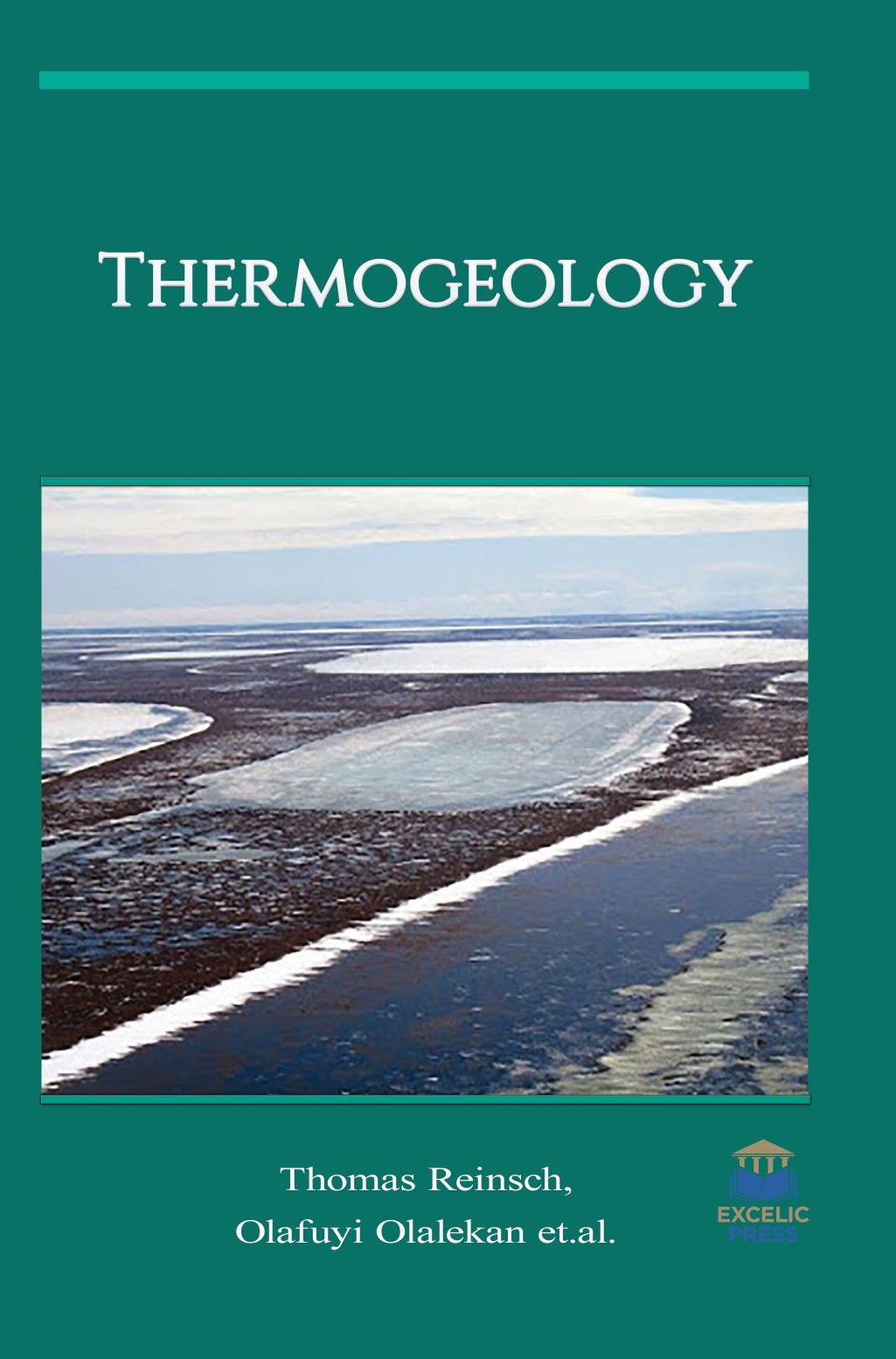The science of ‘thermogeology’ is associated with the study of the storage and transfer of low-enthalpy heat in the relatively shallow geological environment. It is characterized by several analogies with groundwater flow theory; indeed, modern hydrogeology has roots in heat flow theory. Heat conduction is governed by Fourier’s Law and is directly analogous to Darcy’s (groundwater) Law. Groundwater head, hydraulic conductivity and storage have thermogeological analogues in temperature, thermal conductivity and volumetric heat capacity. Advection of heat with groundwater flow is directly analogous to the advective transport of a reversibly sorbed, retarded contaminant. Geothermal technology relies on the fact that the Earth (beneath the surface) remains at a relatively constant temperature throughout the year, warmer than the air above it during the winter and cooler in the summer, very much like a cave. The geothermal heat pump takes advantage of this by transferring heat stored in the Earth or in ground water into a building during the winter, and transferring it out of the building and back into the ground during the summer. The ground, in other words, acts as a heat source in winter and a heat sink in summer.
This book covers state-of-the-art understanding of the emerging technology of ground source heating and cooling. Technical and economic development of these technologies are improved exploration and resource/reservoir characterization, lower-cost drilling techniques, reservoir engineering (obtaining the required fluid flow) and more efficient power conversion. Geothermal energy’s largest contribution to the world’s energy market is through direct use applications such as process heat, thermal desalination and heating and cooling (via adsorption chillers) of buildings. Direct use applications can access low temperature HSA, EGS or convective hydrothermal systems and have the advantage of not needing the very high flow rates or temperatures needed for electricity generation because of the higher efficiencies of direct use applications.
Thermogeology will upkeep engineers, geologists, architects, planners and regulators with the fundamental skills needed to manipulate the ground’s huge capacity to store, supply and receive heat, and to implement technologies (such as heat pumps) to exploit that capacity for space heating and cooling. They will understand the importance of the technology and wish to obtain fundamental theoretical and practical understanding and design skills.













